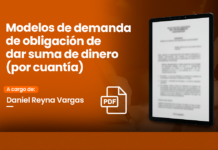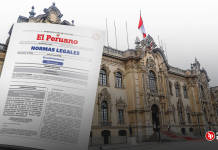Fundamentos destacados: 189. Si bien los datos fiscales en cuestión eran accesibles públicamente en Finlandia, solo pudieron ser consultados en las oficinas fiscales locales y la consulta estaba sujeta a condiciones claras. Se prohibió la copia de esa información sobre palitos de memoria. Los periodistas podrían recibir datos fiscales en formato digital, pero también existían condiciones de recuperación y solo se podía recuperar una cierta cantidad de datos. Los periodistas tuvieron que especificar que la información se solicitó para fines periodísticos y que no se publicaría en forma de una lista (ver párrafos 49-51 anteriores). Por lo tanto, mientras que la información relacionada con las personas era de acceso público, las reglas y salvaguardas específicas gobernaban su accesibilidad.
190. El hecho de que los datos en cuestión fueran accesibles para el público en virtud de la ley nacional no significaba necesariamente que pudieran publicarse en un grado ilimitado (ver párrafos 48 y 54 anteriores). Publicar los datos en un periódico, y difundir aún más esos datos a través de un servicio SMS, lo hizo accesible de una manera y, en cierta medida, el legislador no pretendía.
[Traducido por LP]
189. Whilst the taxation data in question were publicly accessible in Finland, they could only be consulted at the local tax offices and consultation was subject to clear conditions. The copying of that information on memory sticks was prohibited. Journalists could receive taxation data in digital format, but retrieval conditions also existed and only a certain amount of data could be retrieved. Journalists had to specify that the information was requested for journalistic purposes and that it would not be published in the form of a list (see paragraphs 49-51 above). Therefore, while the information relating to individuals was publicly accessible, specific rules and safeguards governed its accessibility.
190. The fact that the data in question were accessible to the public under the domestic law did not necessarily mean that they could be published to an unlimited extent (see paragraphs 48 and 54 above). Publishing the data in a newspaper, and further disseminating that data via an SMS service, rendered it accessible in a manner and to an extent not intended by the legislator.
[Idioma original]
GRAND CHAMBER
CASE OF SATAKUNNAN MARKKINAPÖRSSI OY AND SATAMEDIA OY v. FINLAND
(Application no. 931/13)
JUDGMENT
STRASBOURG
27 June 2017
This judgment is final but it may be subject to editorial revision.
In the case of Satakunnan Markkinapörssi Oy and Satamedia Oy v. Finland,
The European Court of Human Rights, sitting as a Grand Chamber composed of:
András Sajó, President,
Işıl Karakaş,
Angelika Nußberger,
Ganna Yudkivska,
Luis López Guerra,
Mirjana Lazarova Trajkovska,
Kristina Pardalos,
Vincent A. De Gaetano,
Paulo Pinto de Albuquerque,
Helen Keller,
Aleš Pejchal,
Jon Fridrik Kjølbro,
Síofra O’Leary,
Carlo Ranzoni,
Armen Harutyunyan,
Pauliine Koskelo,
Marko Bošnjak, judges,
and Lawrence Early, Jurisconsult,
Having deliberated in private on 14 September 2016 and on 5 April 2017,
Delivers the following judgment, which was adopted on the last‑mentioned date:
PROCEDURE
1. The case originated in an application (no. 931/13) against the Republic of Finland lodged with the Court under Article 34 of the Convention for the Protection of Human Rights and Fundamental Freedoms (“the Convention”) by two Finnish limited liability companies, Satakunnan Markkinapörssi Oy and Satamedia Oy (“the applicant companies”) which had their seat in Kokemäki, Finland, on 18 December 2012.
2. The applicant companies were represented by Mr Pekka Vainio, a lawyer practising in Turku. The Finnish Government (“the Government”) were represented by their Agents, first Mr Arto Kosonen and then Ms Krista Oinonen, both from the Ministry for Foreign Affairs.
3. The applicant companies alleged, in particular, that their right to freedom of expression under Article 10 of the Convention had been violated and that the length of the domestic proceedings had been excessive, in breach of Article 6 § 1 of the Convention.
4. The application was allocated to the Fourth Section of the Court (Rule 52 § 1 of the Rules of Court). On 21 July 2015 a Chamber of that Section, composed of Guido Raimondi, Päivi Hirvelä, George Nicolaou, Nona Tsotsoria, Krzysztof Wojtyczek, Faris Vehabović, and Yonko Grozev, judges, and also of Fatoş Aracı, Deputy Section Registrar, delivered its judgment. It decided by a majority to declare the complaints concerning violation of the right to freedom of expression and the unreasonable length of the proceedings admissible and the remainder of the application inadmissible, and held, by six votes to one, that there had been no violation of Article 10 and, unanimously, that there had been a violation of Article 6 of the Convention. The concurring opinion of Judge Nicolaou and the dissenting opinion of Judge Tsotsoria were annexed to the judgment. On 21 October 2015 the applicant companies requested the referral of the case to the Grand Chamber in accordance with Article 43 of the Convention. On 14 December 2015 the panel of the Grand Chamber granted that request.
5. The composition of the Grand Chamber was determined according to the provisions of Article 26 §§ 4 and 5 of the Convention and Rule 24 of the Rules of Court. At the final deliberations, Helen Keller, substitute judge, replaced Alena Poláčková, who was unable to take part in the further consideration of the case (Rule 24 § 3).
6. The applicants and the Government each filed written observations (Rule 59 § 1) on the merits. In addition, third-party observations were received from the European Information Society Institute, the Nordplus Law and Media Network, Article 19, the Access to Information Programme and Társaság a Szabadságjogokért, which had been given leave by the President to intervene in the written procedure (Article 36 § 2 of the Convention and Rule 44 § 3).
7. A hearing took place in public in the Human Rights Building, Strasbourg, on 14 September 2016 (Rule 59 § 3).
There appeared before the Court:
(a) for the Government
Ms K. Oinonen, Director, Ministry for Foreign Affairs, Agent,
Ms A. Talus, Senior Adviser, Ministry of Justice
Ms H. hynynen, Senior Adviser, Finnish Tax Administration,
Ms S. Sistonen, Legal Officer, Ministry for Foreign Affairs,
Mr A. Kosonen, Director (ret.), Ministry for Foreign Affairs, Advisers;
(b) for the applicant companies
Mr P. Vainio, Lawyer, Counsel.
The Court heard addresses by Ms K. Oinonen and Mr P. Vainio and the replies given by them to questions put by the judges.
[Continúa…]
![[VIVO] Clase modelo sobre un proceso penal garantista en casos de violencia. Llena el formulario para recibir las diapositivas](https://img.lpderecho.pe/wp-content/uploads/2026/02/CLASE-MODELO-SUSANA-CASTANEDA-OTSU-BANNER-218x150.jpg)
![Ley contra el Crimen Organizado (Ley 30077) [actualizada 2026]](https://img.lpderecho.pe/wp-content/uploads/2024/08/ley-de-crimen-organizadoLEY-30077-lpderecho-218x150.jpg)

![Código Procesal Penal peruano [actualizado 2026]](https://img.lpderecho.pe/wp-content/uploads/2024/02/VENTA-CODIGO-PENAL-BANNER-POST-TAPA-DURA-LPDERECHO-218x150.jpg)
![El TC establece seis reglas de interpretación constitucional sobre la duración y extinción del CAS, respecto de los artículos 5 y 10.f del DL 1057, modificados por la Ley 31131 [Exp. 00013-2021-PI/TC, f. j. 116]](https://img.lpderecho.pe/wp-content/uploads/2026/02/BANNER-ARTICULO-CONSTITUCIONAL-22-218x150.jpg)
![Interpretación sobre la Ley de Áreas Naturales Protegidas (Ley 26834): El establecimiento de una «zona de aprovechamiento directo» no implica que esté permitida la extracción a mayor escala de sus recursos, pues no se condice con el objetivo de evitar la extinción de especies de flora y fauna silvestre (caso Reserva Nacional de Paracas) [Acción Popular 19816-2024, Lima, ff. jj. 4.10-4.12]](https://img.lpderecho.pe/wp-content/uploads/2026/02/BANNER-ARTICULO-CONSTITUCIONAL-23-218x150.jpg)

![El pago reiterado de cheques sin verificar los datos de identidad en la Reniec ni la autenticidad de las firmas evidencia graves irregularidades administrativas que descartan una simple negligencia y permiten inferir que actuó con complicidad en el delito de peculado doloso [Apelación 294-2024, Cajamarca, f. j. 7]](https://img.lpderecho.pe/wp-content/uploads/2024/04/mazo-juez-jueza-justicia-defensa-delito-balanza-civil-penal-acusacion-LPDerecho-218x150.jpg)

![Ley Orgánica del Registro Nacional de Identificación y Estado Civil (Ley 26497) [actualizada 2025]](https://img.lpderecho.pe/wp-content/uploads/2025/05/Ley-organica-del-registro-nacional-de-identificacion-y-estado-civil1-LPDERECHO-218x150.jpg)















![Suspenden plazos procesales y administrativos en estos órganos jurisdiccionales y administrativos [RA 000031-2026-CE-PJ]](https://img.lpderecho.pe/wp-content/uploads/2024/03/placio-de-justicia-pj-poder-judicial-fachada-LPDerecho-218x150.jpg)

![TC ordena a ONP abonar a sucesión procesal de trabajador minero fallecido el pago de pensiones devengadas de invalidez a partir de 1972 [Exp. 01932-2025-PA/TC]](https://img.lpderecho.pe/wp-content/uploads/2024/03/tribunal-constitucional-4-LPDerecho-218x150.jpg)
![Declaran reservada información de operativos durante estados de emergencia [Decreto Legislativo 1734]](https://img.lpderecho.pe/wp-content/uploads/2022/04/normas-legales-estado-de-emergencia-LPDerecho-218x150.png)
![Implementan el mecanismo de identificación de titularidades financieras [Decreto Legislativo 1732]](https://img.lpderecho.pe/wp-content/uploads/2024/06/SBS-LPDerecho-218x150.jpg)


![Código Penal peruano [actualizado 2026]](https://img.lpderecho.pe/wp-content/uploads/2024/05/VENTA-CODIGO-PENAL-LPDERECHO-218x150.jpg)
![TUO del Reglamento General de los Registros Públicos (Resolución 126-2012-Sunarp-SN) [actualizado 2026]](https://img.lpderecho.pe/wp-content/uploads/2026/02/TUO-del-Reglamento-general-registros-publicos-LPDerecho-218x150.png)
![Decreto Legislativo del Notariado (Decreto Legislativo 1049) [actualizado 2026]](https://img.lpderecho.pe/wp-content/uploads/2026/02/BANNER-REGLAMENTO-NOTARIAL2-218x150.jpg)
![Código de Responsabilidad Penal de Adolescentes [actualizado 2026]](https://img.lpderecho.pe/wp-content/uploads/2024/08/CODIGO-DE-RESPONSABILIDAD-PENAL-DE-ADOLESCENTES-DECRETO-LEGISLATIVO-1348-ACTU-LPDERECHO-218x150.jpg)









![[VÍDEO] ¿Quieres postular a la Fiscalía? Estas son las preguntas que hacen en las entrevistas](https://img.lpderecho.pe/wp-content/uploads/2021/10/postular-fiscalia-preguntas-entrevista-LP-218x150.jpg)
![EXP. N.° 0022-2009-PI/TC LIMA GONZALO TUANAMA TUANAMA Y MÁS DE 5000 CIUDADANOS SENTENCIA DEL TRIBUNAL CONSTITUCIONAL En Lima, a los 09 días del mes de junio de 2010, el Tribunal Constitucional en sesión de Pleno Jurisdiccional, con la asistencia de los magistrados Mesía Ramírez, Beaumont Callirgos, Vergara Gotelli, Landa Arroyo, Calle Hayen, Eto Cruz y Álvarez Miranda, pronuncia la siguiente sentencia con los fundamentos de voto de los magistrados Vergara Gotelli y Landa Arroyo, que se agregan. ASUNTO Demanda de Inconstitucionalidad interpuesta por Gonzalo Tuanama Tuanama, en representación de más de 5000 ciudadanos contra el Decreto Legislativo N.° 1089. DEMANDA Y CONTESTACIÓN a) Demanda contra el Decreto Legislativo N.° 1089, que regula el Régimen Temporal Extraordinario de Formalización y Titulación de Predios Rurales Con fecha 01 de julio de 2009, se interpone demanda de inconstitucionalidad contra el Decreto Legislativo N.° 1089, que regula el Régimen Temporal Extraordinario de Formalización y Titulación de Predios Rurales, publicada en el diario oficial El Peruano el 28 de junio de 2008. Los demandantes refieren que “'sin entrar al fondo del contenido de la norma”, ésta fue promulgada sin efectuar ninguna consulta previa e informada a los pueblos indígenas, tal como lo ordena el Convenio 169 de la Organización Internacional De Trabajo (OIT), afectándose con ello los derechos fundamentales de los pueblos Indígenas, como el derecho a la consulta previa y el derecho colectivo al territorio ancestral, establecidos en los artículos 6, 15, 17 del mencionado convenio. De igual forma, expresan que no se tomaron en cuenta los artículos 19, 30 y 32 de la Declaración de las Naciones Unidas sobre los Derechos de los Pueblos Indígenas (DNUDPI) aprobado por la Asamblea General de la Organización de Naciones Unidas. Alegan que con dicha norma se afectan otros derechos establecidos en el Convenio N.° 169, como el derecho sobre las tierras de los pueblos indígenas (artículos 13 al 19), en el considerando que no se tomaron en cuenta medida que garanticen la protección de sus derechos de propiedad y posesión. Refieren que se afecta también el derecho a la libre determinación de las comunidades nativas, previsto en el artículo 17 del Convenio, que declara el respeto de sus formas tradicionales de transmisión de sus territorios. Por último, alegan que se estaría vulnerando lo previsto en el artículo 19 del Convenio en cuanto se afecta el derecho al desarrollo de políticas agrarias adecuadas para los pueblos indígenas. [Continúa...] Descargue la resolución aquí](https://img.lpderecho.pe/wp-content/uploads/2023/01/Logo-LP-con-fondo-guinda-LPDERECHO-1068x561.png)


![Si los bienes sobre el que recaen el embargo y la orden de inhibición son sociales, una vez que producido el fenecimiento de la sociedad de gananciales y producida su respectiva liquidación, se forman las cuotas ideales de cada cónyuge [Apelación 353-2025, Lima, f. j. 15]](https://img.lpderecho.pe/wp-content/uploads/2024/04/balanza-mazo-abogado-juez-justicia-defensa-LPDerecho-218x150.jpg)
![Nombre del año 2026: Año de la Esperanza y el Fortalecimiento de la Democracia [Decreto Supremo 011-2026-PCM]](https://img.lpderecho.pe/wp-content/uploads/2022/12/palacio-gobierno-1-LPDerecho-324x160.png)
![Código Penal peruano [actualizado 2026]](https://img.lpderecho.pe/wp-content/uploads/2024/05/VENTA-CODIGO-PENAL-LPDERECHO-100x70.jpg)
![Código Procesal Penal peruano [actualizado 2026]](https://img.lpderecho.pe/wp-content/uploads/2024/02/VENTA-CODIGO-PENAL-BANNER-POST-TAPA-DURA-LPDERECHO-100x70.jpg)
![Trabajadores de confianza pueden tener un periodo de prueba más extenso y no tienen derecho a indemnización vacacional (caso Dina Boluarte) [Casación 37905-2022, Lima]](https://img.lpderecho.pe/wp-content/uploads/2024/04/RENIEC-DINA-BOLUARTE-LPDerecho-100x70.jpg)
![Código Civil peruano [actualizado 2026]](https://img.lpderecho.pe/wp-content/uploads/2024/05/VENTA-OFICIAL-CODIGO-CIVIL-2024-LPDERECHO-100x70.jpg)
![El TC establece seis reglas de interpretación constitucional sobre la duración y extinción del CAS, respecto de los artículos 5 y 10.f del DL 1057, modificados por la Ley 31131 [Exp. 00013-2021-PI/TC, f. j. 116]](https://img.lpderecho.pe/wp-content/uploads/2026/02/BANNER-ARTICULO-CONSTITUCIONAL-22-324x160.jpg)

![[VIVO] Clase modelo sobre un proceso penal garantista en casos de violencia. Llena el formulario para recibir las diapositivas](https://img.lpderecho.pe/wp-content/uploads/2026/02/CLASE-MODELO-SUSANA-CASTANEDA-OTSU-BANNER-100x70.jpg)


![Nombre del año 2026: Año de la Esperanza y el Fortalecimiento de la Democracia [Decreto Supremo 011-2026-PCM]](https://img.lpderecho.pe/wp-content/uploads/2022/12/palacio-gobierno-1-LPDerecho-100x70.png)
![El TC establece seis reglas de interpretación constitucional sobre la duración y extinción del CAS, respecto de los artículos 5 y 10.f del DL 1057, modificados por la Ley 31131 [Exp. 00013-2021-PI/TC, f. j. 116]](https://img.lpderecho.pe/wp-content/uploads/2026/02/BANNER-ARTICULO-CONSTITUCIONAL-22-100x70.jpg)




![El servicio de serenazgo cumple el objetivo de brindar seguridad ciudadana mediante la vigilancia pública y la atención de emergencia, es por ello que la prestación del mismo se intensifica en zonas de alta peligrosidad [Exp. 0041-2004-AI/TC, f. j. 44]](https://img.lpderecho.pe/wp-content/uploads/2023/01/Logo-LP-con-fondo-guinda-LPDERECHO-324x160.png)